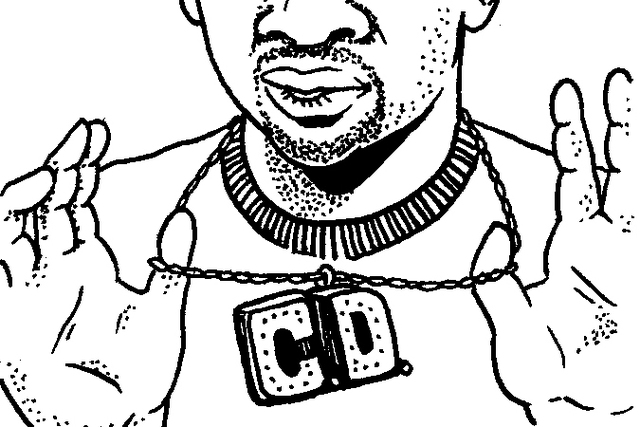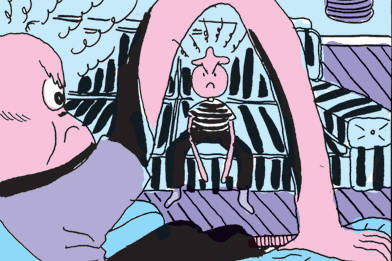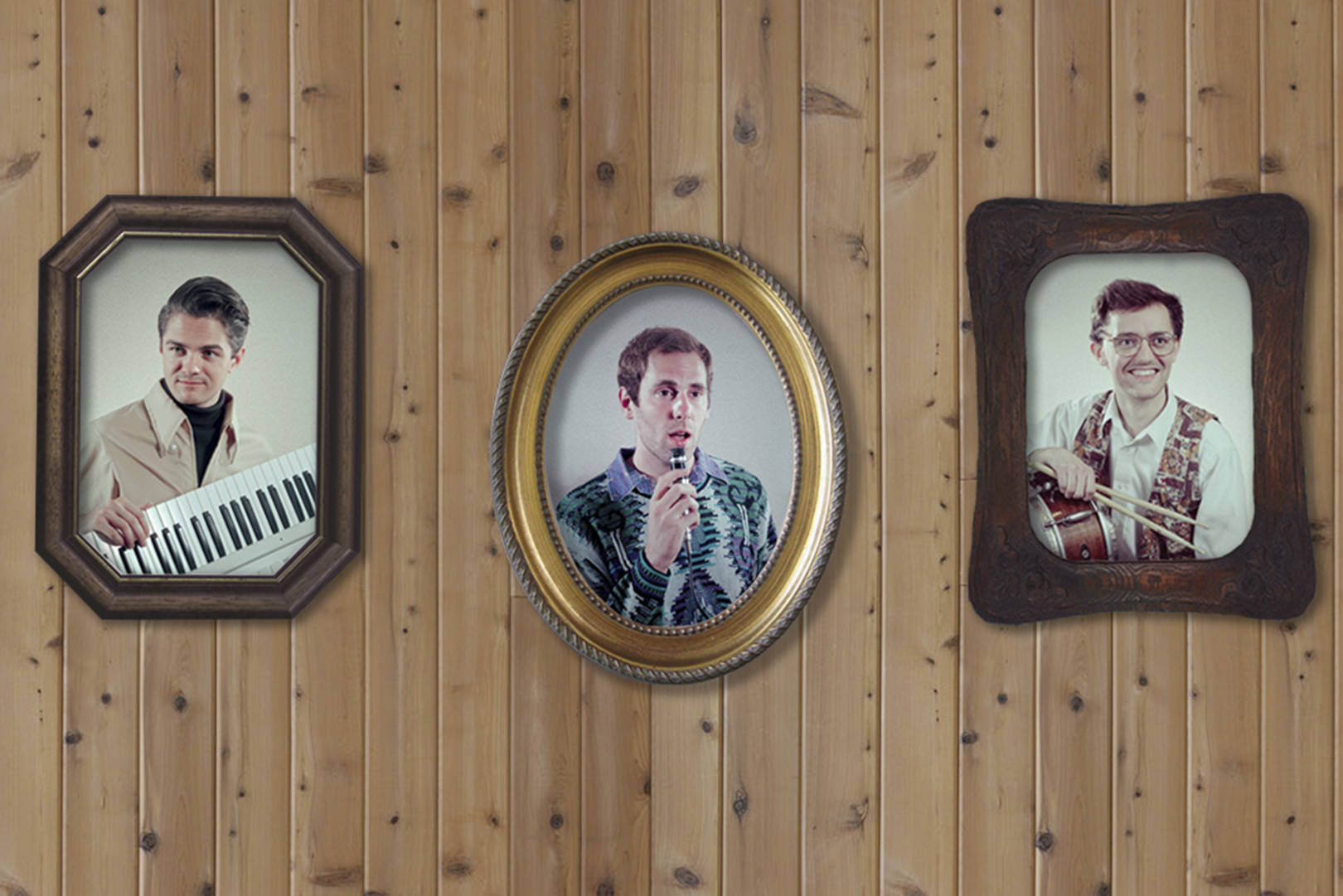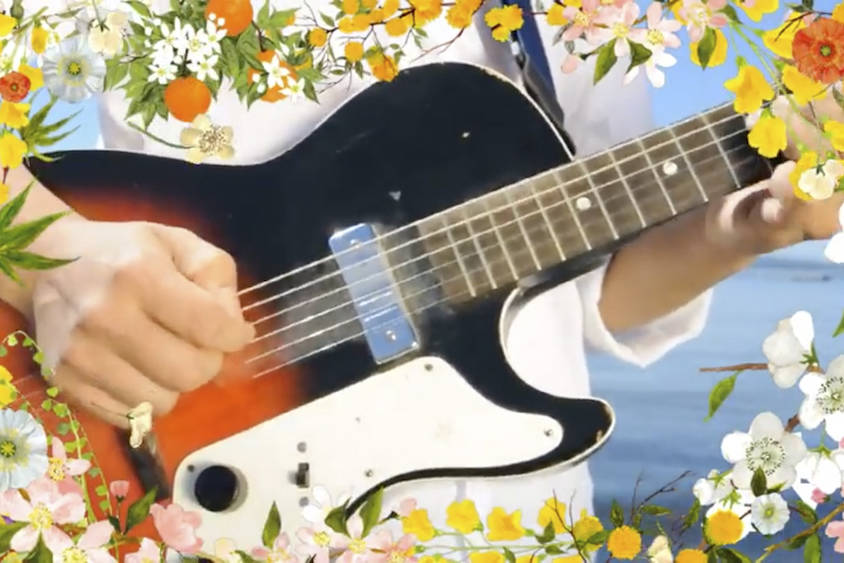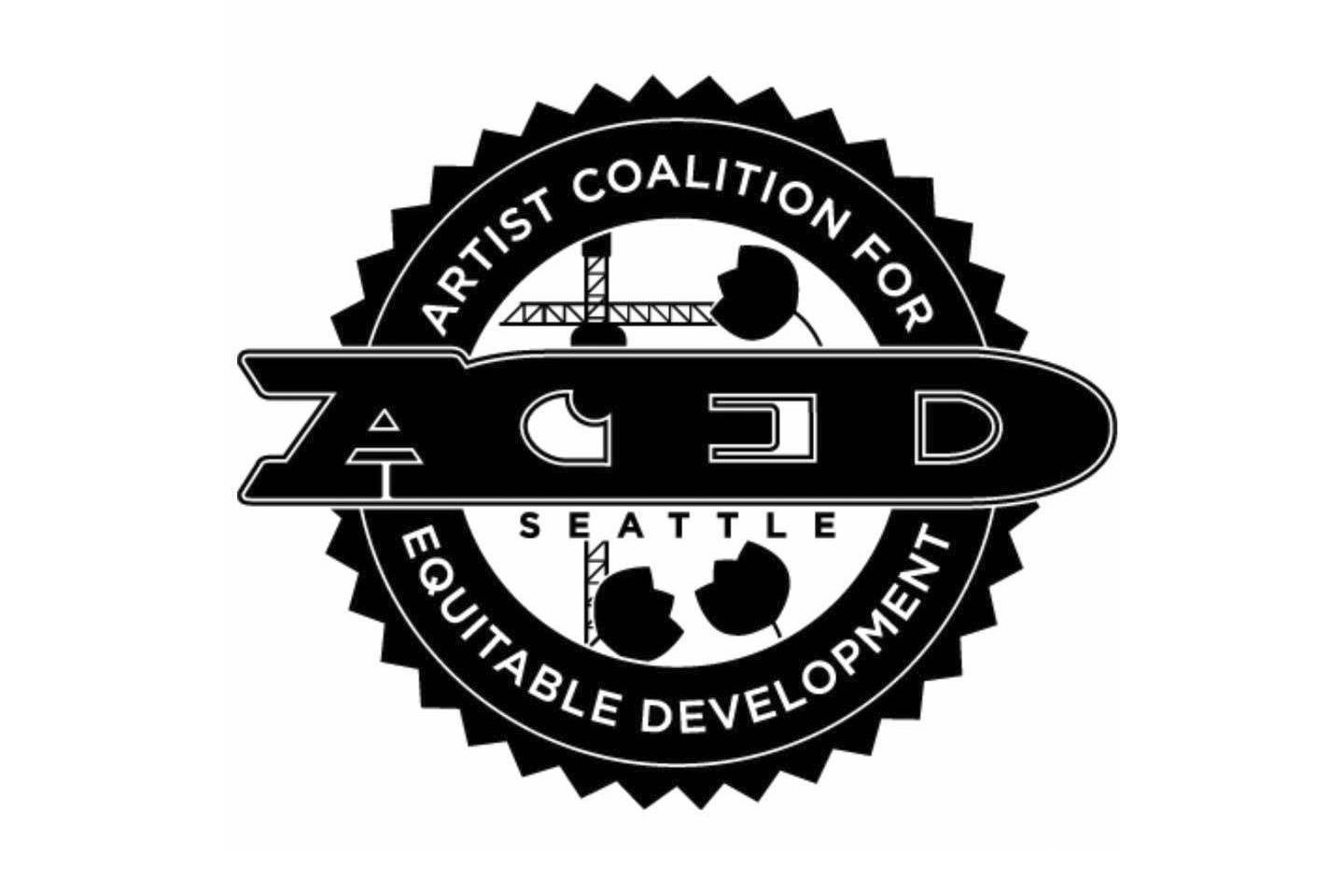The traditionally black Central District is the latest and perhaps most dire front in the continuing war against gentrification in Seattle. The two main intersections at the heart of the neighborhood, 23rd and Union and 23rd and Jackson, are both slated for massive redevelopment.
The clearest and most incisive recent critique of the capital forces changing the neighborhood came last week in the form of a seven-years-in-the-making hip-hop album, Seattle’s Own, from Central District native and current South-Ender Dumi Maraire Jr., aka Draze. Songs like “Irony on 23rd” mourn the perceived lack of scrutiny that led to the building of Uncle Ike’s, the city’s most popular pot shop, next to a black church on a block where African-Americans had been arrested for selling weed for years prior to legalization. In “The Hood Ain’t the Same,” Maraire raps, “Don’t try to paint me as the black man who’s angry/When you gut my community it’s hard to build a legacy.” We spoke to Draze, who recently scored music spots on Love & Hip-Hop, Empire, and SportsCenter, at a cafe, one block from Uncle Ike’s.
Steve Sneed, who is leading the Central Area Arts & Cultural District program, recently told me “We know realistically we’re not going to see the Central Area become 90 percent black again. … But if the neighborhood could at least reflect in living, business, and play an African-American spirit, and my grandchildren can grow up here seeing their reflected presence in the art, even in the new development, that’s really my hope.” What do you think about that statement? Unfortunately, while I agree with everything Steve’s doing, there’s a piece of me that, just as a human, feels sad, because you know, it feels like a loss. Like an acceptance that maybe there’s not much we can do. That maybe there’s something we can do, but it feels like he’s just trying to do whatever we can do at this point to make sure some sort of legacy’s left. People tend to think gentrification is something we as a people can’t do anything about. I totally reject that. We have to care enough to do something about it. If we stand up and do something about it, things will happen.
Is this album your way of doing something about it? On the album, I speak to a hundred different things. Gentrification is just one theme. Speaking to my community and trying to give a voice to how we feel in present day at this moment about it. The themes on this album around gentrification are the beginning—we’re getting ready to move some chess pieces around to do some things.
Is it too early to talk about what those things are? No, it’s not. On 4/20, we’ll be here. 23rd and Union.
Tell me about that song “Irony on 23rd.” How did you feel when Uncle Ike’s went up? I was angry initially. I was appalled, I think that’s the word. I was just like, “What? How’s this possible? There’s a church right here.” Then you have this myriad of emotions. “Well, they’re selling drugs; I know people who went to jail for this.” It’s a wave of emotions you don’t even know what to do with.
One of the most common criticisms I’ve seen of the debate over Uncle Ike’s is, “Well, there is and has been a liquor store on 23rd and Union right across the block from the church, and nobody ever said anything about that.”It’s about discretion. I’m talking—you can reach out and touch Uncle Ike’s from the church. That’s very, very different. Then, from what I understand, I’m not the authority, but somehow the church doesn’t qualify with the [I-502 marijuana shop] proximity laws. I don’t attend the church, but the other day, I was scrolling through my Facebook and saw a photo of some kids there for youth Bible study. How doesn’t that qualify? There’s 20-something kids there, I’m looking at the picture! I thought, “Kids didn’t go there.” Who’s going to stand up and do something about that?
The other criticism I see is, the man who owns Uncle Ike’s, Ian Eisenberg, is Jewish, grew up in the neighborhood, and his grandparents were also redlined into the Central Area because of it. Is that still gentrification? The difference is, the black American has a unique relationship to America that no other people do. When you’re talking to a people who came here via slavery, that’s very different. You’re not choosing to be here, you’re slaves, and so you’re fighting to plant roots and find a sense of belonging. You’re redlined into an area you didn’t choose, you’re trying to build something for yourself, and that’s where we talk about the injustice in getting pushed out. Having roots is crucial. Spiritual, mental, and emotional health—it’s huge. And think of all the massive things that have been done to African-Americans: drugs, crack cocaine being flooded into communities, and we didn’t have anything to do with it, but we felt the brunt of it. We’re just recovering from crack. Here we are, getting on our feet, starting to build community and an economy, and now we’re pushed out to go where? You know what I mean? It’s insensitive. My response is, I don’t deny Ian’s legacy and family, but to compare the two—they don’t compare. African-Americans and Jewish-Americans, very different situation when it comes to their history in this country.
When did you notice things starting to change? I started to hear about it back in the early ’90s. I started hearing it was coming. You start hearing the words “They want our community,” and it’s like, “Who’s ‘they’?”
You talk about how “the enemy is faceless” in your song “Hood Ain’t the Same.” Is that “they” who you were talking about? For me, that’s more of the B.S. That’s the cop-out, that’s the excuse. The “faceless enemy” is the thing Mayor Ed Murray can hide behind. The faceless enemy is who the developers can hide behind. “Hey, I didn’t rezone this area! I’m just doing business—if I didn’t, someone else would.” Capitalism. The faceless enemy is the racist system that’s in place—and it’s not without intention, not without thought, but it is without care.
I think when people saw Vulcan’s plans for 23rd and Jackson, that became one of the most blatant cases of a developer gentrifying the neighborhood in recent memory. Do you think it’s becoming more clear who the “faceless enemy” is? I don’t. At the end of the day, they’re just part of the game. To me, it’s, who rezoned that spot? There’s your answer. I had a friend of mine who lives in Bellevue, and when I put out “The Hood Ain’t The Same,” he called me, he works in real estate, and he said, “let me show you the zoning for the area.” He started showing me and how it changed over the years, and he said, “pardon my French, but whoever did this, they fucked you.”
I think Vulcan is a part of the problem, but they aren’t the whole problem, but it’s easy to blame Vulcan. It’s fun. We the people like to have something to throw a stone at, and we want something big and faceless to throw a stone at so we can feel like we’re tearing down a racist system, but Vulcan’s not the racist system. They happen to be a big part of that racist system in the neighborhood right now, but they aren’t it.
The tact in Seattle to combat gentrification has been to throw stones at faceless entities in sort of a fun, ha-ha kind of way—especially with Amazon. Do you think that’s beyond the point? To talk bad about Amazon?
To focus on them or Vulcan as the main agents of gentrification. No, that would be like me knocking Steve Sneed for what he’s doing. I think its great for people to get involved wherever they feel called. There is no one area that needs focus, they all need focus. It is important for us to put pressure on Amazon and Vulcan, but that’s not exclusively where our attention needs to be focused, it needs to be focused in a hundred other areas as well.
“Ain’t Nobody Talking About Real Shit,” seems like a rallying call to get the hip-hop community involved in this—and in “Seattle’s Own” you shout out tons of local rappers. Do you feel like the Seattle hip-hop community has been talking about these national and local issues as much as they should? I think Seattle’s hip-hop scene is very conscious. Unfortunately, on a national stage, there’s not many of us at this point, but Seattle’s scene is speaking to the issues of the world as best as you can ask—straight across the board. We have lots who don’t, but we absolutely talk about real shit.
Do you think lots of local hip-hop artists don’t reach that national stage because they talk about real shit? No, I think there’s so many factors that feed into that. A lack of industry, a lack of press and media coverage, that’s huge. In my song, I mention “everybody south of Capitol Hill is fucking with me.” Move south of Capitol Hill, Draze’s name resounds. You come up North, the media won’t cover me because I won’t be silent about the issues that effect my community. I don’t fit their agenda. There’s a bias towards a lot of artists south of this area. Also, there’s the radio. The underground sees this system and the injustice, and reacts positively to music that calls that out, but because hip-hop is a predominantly African-American culture, there are powers at be that want to see us degrading ourselves. Poppin’ bottles and getting ho’s versus uplifting people.
Tell me about the break you took from 2007 til now. I wasn’t consciously trying to do that, I just kind of stepped away for a little while and family became more important, my daughter. I started seeing things in myself I wanted to change, and I can’t make my art if I’m not happy with where I’m at as a person. A few years back I said, “you know, I wanna jump back in the game.” I was never not creating music, I was always creating—I just wasn’t creating for that same purpose.
How do you work with your daughter [who raps on “Children of the Light”] in her hip-hop aspirations—do you talk to her about industry approved “turn-up” stuff and why it doesn’t jibe with you? That is challenging! Because—being a father, I really learned that number one—you don’t control anyone. The minute you say “pick that up!” and they say “no!” you go, “okay… I’m going to have to negotiate with a three-year-old.” For me, the challenge is, she’s in high school, she goes to Garfield, and she goes to a high school where everything is going in one direction, and I’m at home going “there’s another option.” I like that she’s finding a way to blend those two. She’s 15—I don’t want her to sound like she’s my age. She loves Drake and Kendrick Lamar and J. Cole—some of the ways I’m able to influence her is putting on Common and The Roots in the car so she has a healthy appreciation, but with her friends she listens to different music. When you ask who her favorite music is, I’m excited that she chooses J. Cole, which to me blends those worlds very well. I tell her he’s her second favorite rapper next to me.
Speaking of J. Cole and Kendrick Lamar, these are two rappers talking about “real shit.” Do you see that more on a national level? Not really yet. I think it’s coming. The corner’s just coming. Kendrick and J. Cole are just now becoming the leaders, but people were adjusted to following Rick Ross. But now they’re going “oh wait, there’s another way?” I think we’ll see a lot more of it because labels are seeing there’s money in it. But the challenge is, you have to be good to do it. When it comes to this kind of music, if you don’t have something to feed people, you’re better off doing some jingle. You have to have opinions and some wisdom. I could sit down with Kendrick or J. Cole and the conversation would go everywhere—I can’t say that about lots of rappers.
Do you think the thorniness of getting political scares rappers away from taking that path? If it does, it was never for you. One of my professors at my school says “if you’re not willing to step into shit, this isn’t the place for you.” There’s some real stuff going on right now, and when I put out a song, I expect the hate mail. Everyone is a Twitter Nazi now. Everyone hides behind their Twitter. When I did “Seattle Sweeties,” The Stranger called me a misogynist. I was like, “are you kidding me?” They got the lyric wrong, which was like a crater between what we were actually saying. We’re in a very opinionated society, people think very differently and you have to have thick skin. That’s just hip-hop. If you go to a barbershop, we’re trashing people! You’re not ready for hip-hop period if you can’t handle it. If the Weekly doesn’t write a good review of you, are you going to quit, or keep grinding? This is a lifestyle, these are causes, we’re raising money for causes. I’m trying to have impact on humanity, but if you’re trying to make a hot track, maybe it’s not for you.
